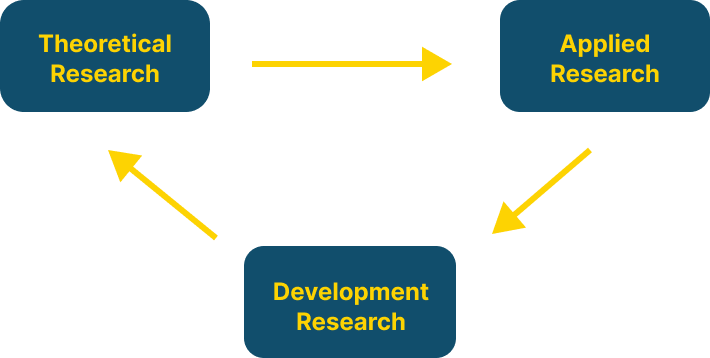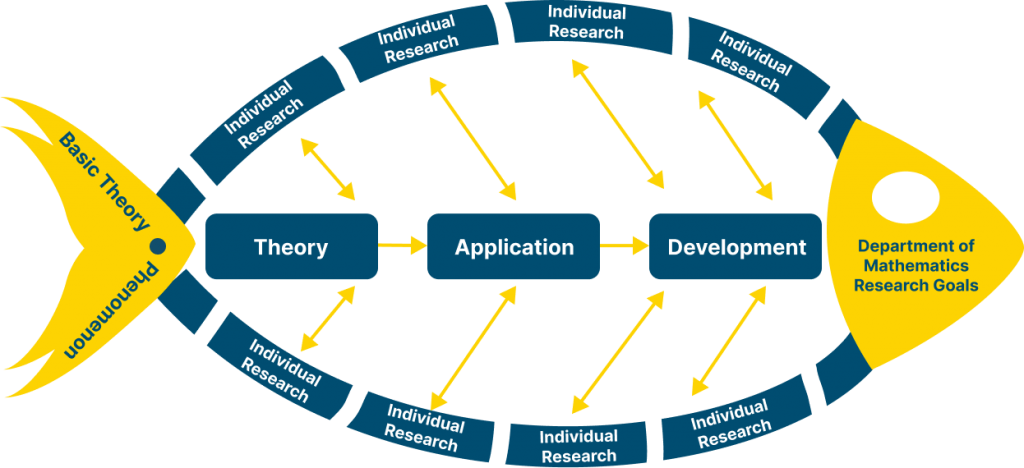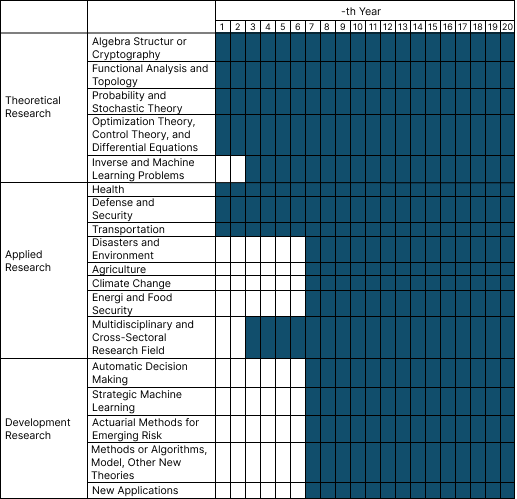As a part of a higher education institution, the Department of Mathematics in the Faculty of Mathematics and Natural Science, Universitas Gadjah Mada is obliged to carry out the Tri Dharma of higher education, especially the research aspect, with full responsibility. This obligation to carry out the Tri Dharma is further strengthened by UGM’s commitment, as stated in the Government Regulation No. 67 of 2013 concerning the Statutes of Universitas Gadjah Mada, which includes UGM’s commitment to:
- The formation and development of personality and human capabilities as a whole;
- The construction of science, technology, and art; and
- The preservation, maintenance, and scientific development of the elements and the entirety of Indonesian culture, as well as its living and natural environment.
In carrying out the Tri Dharma of higher education, the Department of Mathematics in the Faculty of Mathematics and Natural Science, UGM has established the department’s vision and mission by referring to and following the basic values, vision, and mission of Universitas Gadjah Mada, as well as the vision and mission of the Faculty of Mathematics and Natural Science, UGM.
Principles
- Theory and application research are not held separately.
- Research in the Mathematics Department is developed by following the flow:

Research Stages
(Implementation does not have to be sequential)
- Stages of Theoretical Research
- Stages of Applied Research
- Stages of Development Research (new)
Research Focus
In general, the research focus is directed at theoretical and applied research. For more details, each research is focused on:
- Theoretical Research
Theoretical research is focused on:
- Algebraic/cryptographic structures,
- Functional and topological analysis,
- Probability theory and stochastics
- Optimization theory, control theory, and differential equations
- Inverse and machine learning problems
- Applied Research
Applied research is mainly focused on modeling and problem solving.
- Health,
- Defense and security,
- Transportation,
- Disasters and the environment,
- Agriculture,
- Climate change,
- Energy and food security, as well
- Multidisciplinary and cross-sectoral research
- Development Research
The implementation of applied research has great potential and is expected to encourage the emergence of new methods, models, and theories. Therefore, development research is focused on developing new models, methods, algorithms, or theories, including:
- Automatic decision-making
- Strategic machine learning
- Actuarial methods for emerging risks
- Other new methods, algorithms, models, and theories
- Application (new)
Fishbone Diagram

Research Stages

For more information about the Research Roadmap of the Department of Mathematics, you may visit the following link.
